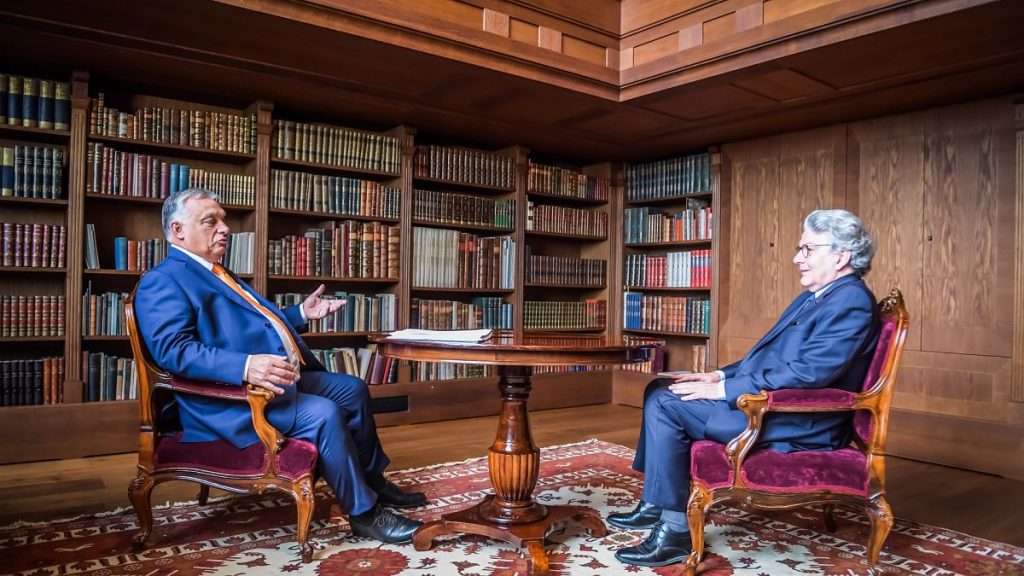The Musk-Orbán Nexus: A Clash of Narratives on Electoral Interference
The intersection of Elon Musk’s influence on social media and Hungarian Prime Minister Viktor Orbán’s long-standing accusations of foreign interference in domestic politics has sparked a heated debate centered on allegations of electoral censorship and democratic values. This complex interplay began with Hungarian MEP András László, a member of Orbán’s Fidesz party, criticizing perceived double standards in Brussels’ approach to foreign interference. László highlighted Musk’s endorsement of the far-right Alternative for Germany (AfD) on X (formerly Twitter), contrasting it with concerns raised about other forms of alleged interference, including US funding for independent media in Hungary and the activities of philanthropist George Soros. This juxtaposition ignited a discussion about the nature of foreign influence, freedom of speech, and democratic processes within the European Union.
László’s argument hinges on the premise that Brussels is selectively targeting certain actors while ignoring others, especially when electoral outcomes are unfavorable to established political forces. He accuses "liberal elites" of attempting to "cancel democracy" when elections don’t go their way, suggesting a concerted effort to undermine the will of the people. Musk’s endorsement of László’s post amplified this narrative, adding fuel to the fire and attracting international attention to the ongoing tensions between Orbán’s government and the European Union.
The backdrop of this dispute is Orbán’s nearly 15-year rule in Hungary, marked by accusations of media suppression, restrictions on academic freedom, and a tightening grip on power. Fidesz, Orbán’s party, has consistently blamed external forces, ranging from Soros to the US government, for interfering in Hungarian affairs. Critics, however, argue that these accusations serve as a smokescreen to deflect attention from Orbán’s own efforts to consolidate control and stifle dissent. The US government’s Independent Media Support Fund, designed to bolster independent journalism in Hungary given concerns about media pluralism, has become a focal point of this debate. Fidesz frames the fund as an example of unwarranted foreign interference, while supporters view it as a crucial measure to safeguard democratic principles in a context of shrinking media freedom.
Adding to the complexity of the situation is the case of the 2022 Hungarian elections. While the OSCE noted issues with unregulated spending benefiting the ruling parties, Fidesz maintained its stance on foreign interference, pointing to a declassified intelligence report as evidence. The opposition, however, denied receiving foreign funds and accused the State Audit Office of acting as Orbán’s instrument to suppress dissenting voices. This confluence of events highlights the polarized nature of the Hungarian political landscape, where accusations of foreign interference are a recurring theme, and the boundaries between legitimate external engagement and undue influence remain blurred.
The figure of George Soros looms large in this narrative. He has been a frequent target of Fidesz campaigns, often portrayed as a puppeteer manipulating events behind the scenes. The party criticizes Soros’s meetings with EU officials and his funding of organizations like the Open Society Institute. Critics argue that the attacks on Soros are rooted in antisemitism, recalling historical tropes used to demonize Jewish figures. While Soros and his organizations engage in lobbying and advocacy within the EU framework, defenders argue that these activities are legitimate forms of democratic participation, not evidence of malicious interference.
Finally, the discussion surrounding Elon Musk’s intervention raises questions about the role of social media platforms in shaping political discourse and influencing electoral outcomes. Musk’s public endorsements, coupled with his ownership of X, give him significant power to amplify certain narratives and potentially sway public opinion. While his supporters view his actions as exercises of free speech, critics express concerns about the potential for manipulation and the blurring of lines between personal opinions and platform neutrality. This debate touches upon broader concerns about the responsibilities of social media giants in ensuring fair and transparent elections. The complexities of the Musk-Orbán nexus highlight the intricate challenges facing democracies in the digital age, where the interplay of political narratives, social media influence, and accusations of foreign interference can significantly impact the integrity of electoral processes.

